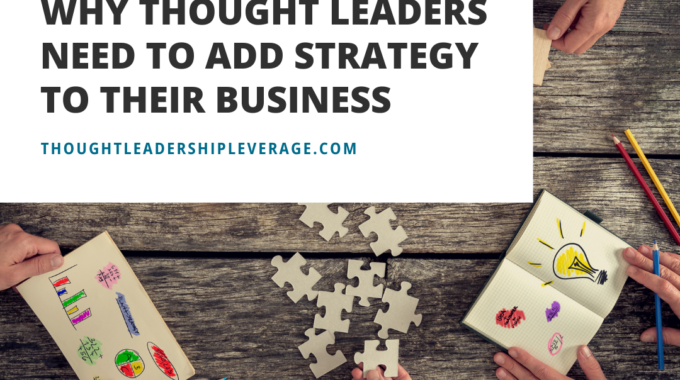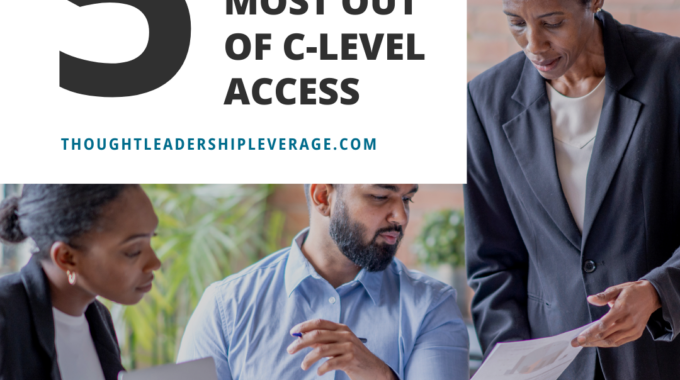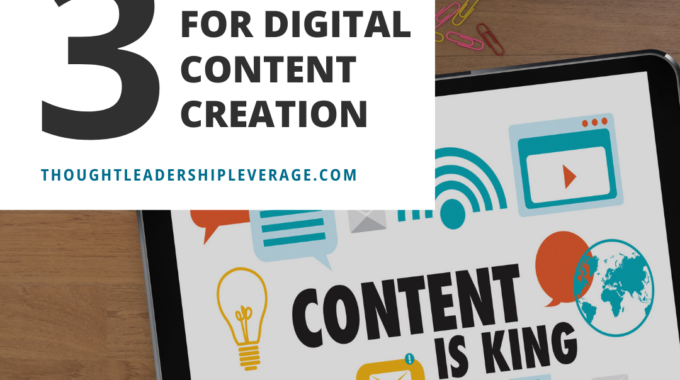Is your thought leadership strategy as solid as a rock? Let's get real—having a strategy…
Leveraging Your Book and Platform Strategically – Part 2
Here are few more ideas to think about when contemplating how to best leverage your content and your book. Obviously not every option is a viable one for everyone but the more you consider the more you will ultimately be able to use.
1. Create an Assessment Tool
What will happen if people read your book? The promise of many books is that as a result of people reading or consuming it they will be able to think, act, believe, behave or perform quicker, better, faster, or easier than they have before. If you can’t answer that question, put the energy and effort into being able to clearly articulate the answer in a concise manner.
Once you know the answer to that question, now you can develop an assessment tool that measures how well they are progressing or moving towards performing at a higher level. Ideally you would develop a series of assessment tools (i.e.,—a free version, say that evaluates one crucial element for improvement, and then a number of paid versions that that measure individual progress, team progress and organizational progress, professional prowess).
Corporate clients as well as consumers love assessment tools. They are a viable, scalable and incredibly profitable extensions of your content. They are useful products, services, and tools that allow for product diversification and intense socialization of the book content and purposes.
2. Offer Several Types of Coaching
There are several ways in which you can monetize your content via coaching:
- Delivering coaching one to one
- Delivery coaching in groups
- Licensing your coaching process to others to deliver
Clearly document the coaching process you develop and utilize. Make sure it can be readily duplicated and systematized. Include procedures, content, models, metrics, reporting, tracking for accountability, desired outcomes, and other elements to ensure that people achieve real improvement as a result of the coaching they receive.
3. Offer a Variety of Workshops
Your content can easily be converted into several workshops. The key variables are length (2 hours, 2 days, etc.) and purpose. Workshops can be customized to meet the needs of the client and the audience (by function, role, industry, demographically, geographically, etc). Delivery of the workshops can be done by the author or by others that have been carefully selected and trained in the methodology. Workshops can be done in person, by telephone, teleconference, or by video web conference. You can also vary the price a number of ways based on the time, location, and the number of people that attend.
4. Develop Strategic Processes for Leveraging Your Speaking
Many authors focus on keynote speaking because it has traditionally paid rather well. However, the market has shifted dramatically and it is more difficult to manage and achieve success in speaking for many reasons. You can aim at developing a paid speaking income and business, but you might need to start off speaking for free. Some authors and thought leaders continue to speak for free (at least on occasion) – particularly when the target audience is closely aligned to their target market and they can quantify the benefit as a result of all the other opportunities they receive from being there.
No matter where you are at in your career, do not view a speaking gig as a transaction. This is a very expensive mistake. A speaking event should be the beginning of a long term relationship with all the people at the event. It should not end when the applause dies down.
Whether you are being paid or not, develop a plan that covers the pre-event, event and post-event phases. You have a unique opportunity to learn a lot about your sponsor, the client, the audience members, and the people they work and communicate with. Your plan needs to be specifically designed to allow you to develop a deep understanding of their issues, struggles, culture and concerns and therefore be in a great position to offer specific solutions that will have a vital and positive impact on them. Identify their pain! Deliver help for the need! Give them ways to reach you later! Capture their contact information! Follow up with them later!
This Post Has 3 Comments
Comments are closed.






Very informative to start with. I enjoyed reading this crisply written, thoughtful advice provided with such ease. Only someone who has a deep understanding of the subject can share such nuances.
For writers, this is an incredibly informative article. I am recommending this is my website for sure.
[…] http://peterwinick.wpengine.com/2011/09/leveraging-your-book-and-platform-strategically-part-2/ Share this:TwitterFacebookLike this:LikeBe the first to like this. […]
[…] http://peterwinick.wpengine.com/2011/09/leveraging-your-book-and-platform-strategically-part-2/ Share this:TwitterFacebookLike this:LikeBe the first to like this. […]